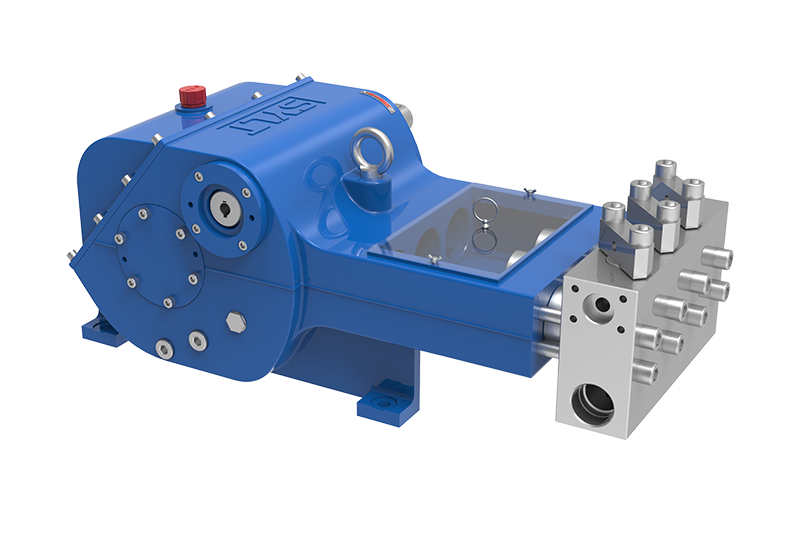Why Choose Stainless Steel for Your High Pressure Pump Needs?
In the realm of industrial equipment, particularly in the domain of pumps and vacuum technology, the material of choice can significantly impact performance, longevity, and maintenance requirements. Among various materials, stainless steel stands out as a top contender for high pressure pumps. This article delves into the reasons why selecting stainless steel for your high pressure pump needs can be a game-changer.
Table of Contents
- Understanding High Pressure Pumps
- The Importance of Material Selection
- What is Stainless Steel?
- Advantages of Stainless Steel in High Pressure Pumps
- Corrosion Resistance
- Strength and Durability
- Maintenance and Longevity
- Temperature Resistance
- Aesthetic Appeal
- Selecting the Right Type of Stainless Steel
- Common Applications of Stainless Steel High Pressure Pumps
- FAQs about Stainless Steel High Pressure Pumps
- Conclusion: Making the Right Choice
Understanding High Pressure Pumps
High pressure pumps are integral components in various industrial applications, where they are responsible for moving fluids against high resistance. These pumps operate under extreme conditions, making their construction material critical to their functionality and reliability. Choosing the right pump not only affects performance but also influences operational costs, maintenance frequency, and service life.
The Importance of Material Selection
The material used in high pressure pumps directly affects various performance parameters, including strength, corrosion resistance, and temperature handling. Using inferior materials can lead to pump failure, costly repairs, and unplanned downtime. Therefore, investing in a pump made from high-quality materials like stainless steel is a decision that pays off in the long run.
What is Stainless Steel?
Stainless steel is a versatile alloy primarily made up of iron, chromium, and varying amounts of carbon and other elements. The chromium content offers excellent corrosion resistance, while the structural integrity of iron provides strength. These characteristics make stainless steel an ideal material for high pressure pumps, as it can withstand harsh environments while maintaining performance.
Advantages of Stainless Steel in High Pressure Pumps
When it comes to high pressure pumps, stainless steel provides a myriad of benefits that enhance performance and reliability. Below, we explore these advantages in detail.
Corrosion Resistance
One of the standout features of stainless steel is its exceptional corrosion resistance. In industrial settings, pumps often come into contact with corrosive fluids, which can lead to rapid deterioration if constructed from unsuitable materials. Stainless steel’s ability to resist oxidation and rust means that pumps remain functional and reliable over time, reducing the need for replacements.
Strength and Durability
Stainless steel is renowned for its strength, making it capable of handling high pressures without deforming or failing. This strength ensures that pumps can operate efficiently under demanding conditions, providing consistent performance. Additionally, the durability of stainless steel minimizes wear and tear, extending the life of your high pressure pump.
Maintenance and Longevity
Maintenance is a crucial aspect of pump operation. Stainless steel pumps require less frequent servicing due to their resistance to corrosion and wear. This means lower maintenance costs and less downtime for repairs, allowing businesses to operate more efficiently.
Temperature Resistance
High pressure pumps often operate in extreme temperature conditions. Stainless steel can maintain its structural integrity under both high and low temperatures, making it suitable for a variety of applications. This thermal stability ensures that pumps can function consistently, regardless of environmental changes.
Aesthetic Appeal
While functionality is paramount, the aesthetic aspect should not be overlooked. Stainless steel’s sleek, modern appearance makes it an attractive choice for visible installations. This can enhance the overall look of your facility and reflect a commitment to quality and professionalism.
Selecting the Right Type of Stainless Steel
Not all stainless steels are created equal. Different grades offer varying levels of corrosion resistance, strength, and weldability. The most common types of stainless steel used in high pressure pumps include:
- Austenitic Stainless Steel (e.g., 304 and 316): Known for excellent corrosion resistance, especially in saline environments, making it ideal for marine applications.
- Ferritic Stainless Steel: Offers good resistance to stress corrosion cracking and is often used where moderate strength is sufficient.
- Duplex Stainless Steel: Combines the best of austenitic and ferritic steels, providing high strength and excellent resistance to corrosion.
When selecting stainless steel for your high pressure pump, consider the specific environmental conditions it will face, including temperature fluctuations, exposure to corrosive substances, and the desired lifespan of the pump.
Common Applications of Stainless Steel High Pressure Pumps
Stainless steel high pressure pumps find applications across various industries:
- Chemical Processing: For moving aggressive chemicals safely and efficiently.
- Food and Beverage: Maintaining hygiene while transporting liquids and semi-solids.
- Water Treatment: Essential in filtration and purification processes.
- Pharmaceuticals: Ensuring sterile conditions for fluid transfer.
- Oil and Gas: Handling crude oil and natural gas under high pressure.
FAQs about Stainless Steel High Pressure Pumps
1. Why is stainless steel preferred over other materials for high pressure pumps?
Stainless steel is preferred for its superior corrosion resistance, durability, and ability to withstand extreme temperatures and pressures, making it ideal for a variety of industrial applications.
2. How does the cost of stainless steel compare to other materials?
While the initial cost of stainless steel may be higher than some alternatives, its longevity, reduced maintenance needs, and overall performance make it a cost-effective choice in the long run.
3. Can stainless steel pumps handle abrasive fluids?
Yes, certain grades of stainless steel are designed to handle abrasive fluids, although it’s essential to select the right grade for the specific application to prevent wear.
4. How often should stainless steel high pressure pumps be maintained?
The maintenance frequency depends on the application and operating conditions, but stainless steel pumps generally require less frequent maintenance compared to those made from inferior materials.
5. What is the lifespan of a stainless steel high pressure pump?
The lifespan can vary based on usage and environmental conditions, but with proper maintenance, stainless steel pumps can last many years, often exceeding those made from other materials.
Conclusion: Making the Right Choice
When it comes to selecting a high pressure pump, the benefits of stainless steel are clear. From its unmatched corrosion resistance and durability to its low maintenance requirements, stainless steel stands out as the optimal choice for various industrial applications. By investing in stainless steel pumps, you ensure reliable performance, reduced downtime, and significant long-term savings. As you consider your options, remember that the material choice is not just about performance; it's about ensuring that your operations run smoothly and efficiently over the years. Embrace the advantages of stainless steel for your high pressure pump needs, and position your business for success.
The 17th China International Powder Metallurgy and Hard Alloy Exhibition
The 2025 17th China International Powder Metallurgy and Hard Alloy Exhibition from March 10-12, 2025, at the Shanghai World Expo Exhibition and Convention Center, Hall H1, B425. We welcome guests to visit.
"Private custom" product design, reliable and durable finished products
"Private custom" like product design, reliable and durable finished products, professional and timely after-sales service. It is the "three basic concepts" that the company adheres to from the beginning until today ".
Experienced market research team, independent product development concept
We have experienced mature market research team, independent product research and development concept, professional design and manufacturing technology so that the company's products can be adjusted according to the specific requirements of customers timely design







